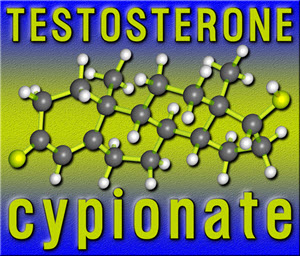Poison is in everything, and no thing is without poison. The dosage makes it either a poison or a remedy. Paracelsus
As with any medical intervention, the benefits of Low T therapy must be weighed against the potential risk of adverse reactions or side effects of testosterone replacement therapy. Just as Paracelsus says in the quote above, whether testosterone replacement creates a poisonous or beneficial environment is largely dependent upon how the medication is delivered and dosed.
Those who abuse testosterone and other androgens may experience significant and even life threatening side effects. Somewhat similarly, if treatment of Low T is mismanaged or not carefully monitored, patients will experience a higher rate and increased severity of adverse reactions or possibly a complete lack of meaningful results.
For the most part, this discussion will deal with the side effects of testosterone replacement therapy (TRT) in general, but some attention will be given to particular differences in the variety of methods utilized for treatment of Low T. You can also watch the video below to hear from one of our founding partners, Augie Galindo, PA-C about the side effects of testosterone replacement therapy.
Some side effects seen with TRT are the direct result of the use of exogenous testosterone (testosterone not made naturally in the body). Pharmaceutical grade testosterone is bio-identical, that is, it is constructed, recognized, and utilized in the same manner as the hormone produced by your body. Many adverse effects occur only in the presence of higher testosterone levels, and still others are simply the consequences of the bodys normal metabolism of testosterone. This metabolism, or breakdown of testosterone, occurs in the same manner for both exogenous and endogenous testosterone (naturally produced testosterone), but because of an increased abundance of testosterone this may lead to higher than normal levels of these metabolites.
Normal metabolism of testosterone results in its conversion into two primary metabolites, dihydrotestosterone (DHT) and estradiol (E2, a form of estrogen). Elevated levels of DHT can cause benign growth of the prostate, increased oiliness of the skin and acne, as well as male pattern balding. Abnormal increases in estradiol can lead to mood swings, breast tissue changes, and fluid retention that may cause swelling or increases in blood pressure. Furthermore, abnormal estradiol levels have been linked to lower testosterone levels, erectile dysfunction, and a decrease in free testosterone.
According to the 2010 update to Testosterone Therapy in Adult Men with Androgen Deficiency Syndromes: An Endocrine Society Clinical Practice Guideline, the conversion rate and subsequent ratio of testosterone to estradiol and DHT does not change when treating Low T via injection of testosterone cypionate. These ratios may be negatively affected with other Low T treatments (gels, patches, pellets, etc.).
While prostate changes can occur with testosterone replacement, a study published in The Journal of Clinical Endocrinology & Metabolism in June of 2010, which looked closely at the adverse reactions reported in 51 other studies, found there to be no increased risk of the development of prostate cancer, prostate related urinary symptoms, or elevated PSA (prostate specific antigen). Basically, prostate cancer is NOT one of the side effects of testosterone replacement therapy. That aside, because PSA is essentially a tumor marker for prostate cancer, patients with a first-degree relative who has been diagnosed with prostate cancer and those with an elevated PSA level should proceed with caution and be monitored closely.
For men with a personal history of prostate cancer, treatment for Low T is considered contraindicated according to most sources. It is important to note that testosterone replacement does not give you prostate cancer, but certainly elevated testosterone levels (even to the normal range) can cause an otherwise unnoticed prostate lesion to grow more aggressively.
It is important to note that testosterone, in and of itself, is not a causative factor in the development of prostate cancer. That myth has finally been debunked through countless studies over several years while more recent data now indicate that low serum testosterone levels are a potential predictor of high-risk prostate cancer. The more interesting debate at this point is the potential consequence of increasing a mans testosterone level, even to a normal range, in the presence of an existing prostatic growth.
The findings of multiple studies over the years have ranged from testosterone appearing to be associated with promoting the transition of a common, low-grade lesion into one of a more aggressive nature, to testosterone actually contributing to cell death of the malignancy to no appreciable effect whatsoever. Obviously the current data is inconclusive, however, it is becoming more and more apparent that as we ponder the safest recommendations, while peering through the lens of risk/benefit analysis, living with testosterone deficiency may indeed be the more risky endeavor.
The production of testosterone and sperm both are controlled by what is referred to as the Hypolthalamus-Pituitary-Gonadal Axis. That is, the hypothalamus ( a portion of the forebrain responsible for the control of certain autonomic nervous system actions and pituitary gland activity) talks to the pituitary gland by mean of a chemical messenger (GnRH gonadotropin-releasing hormone).
The pituitary gland in turn will talk to the testicles (male gonads) also by means of different chemical messengers (LH luteinizing hormone and FSH follicular stimulating hormone).
Low T occurs when either this hormonal cycle fails to stimulate the testes to produce testosterone or more commonly when the testes themselves fail to respond to said stimulation.
When testosterone levels are normalized, either by natural means or through treatment of Low T, the brain reduces the stimulus to produce testosterone by secreting less GnRH. Since this singular hormone controls both FSH and LH, the natural suppression of GnRH that occurs can reduce fertility.
Additionally, it is this same process that is responsible for the potential reduction in size and/or change in firmness of the testicles.
Other side effects of testosterone replacement therapy that are not part of normal functioning are increased red blood cell counts (erythrocytosis), potential decreases in good cholesterol or high-density lipoproteins (HDL), and increases in diastolic blood pressure (the lower of the two numbers reported in blood pressure readings). The effects of high blood pressure are well known and the reasons for avoiding hypertension during TRT are no different from standard recommendations. Increased number of red blood cells on the other hand, can lead to significant risk if not managed appropriately.
Think of red blood cells (RBCs) as the solid portion of the solution that is whole blood, and your hematocrit (HCT) the percentage of blood volume made up of RBCs. If you add more solid to any solution without proportionately increasing the volume of the liquid it is suspended within, the result is a thicker solution. Thickening of the blood then, is the end result of an increase in the number of RBCs.
Hematocrit values greater than 54.0% increase a patients risk factors for abnormal clotting, spleen enlargement, heart failure and other serious conditions. If erythrocytosis does occur, it is typically rather easy to address. However if its assessment is overlooked, as is far too often the case, it can lead to potentially serious problems.
Certain side effects of testosterone replacement therapy are preparation specific. Gels, creams, and other topical agents can cause skin irritation and secondary exposure to women and children who come into contact with the medication via direct transfer. Some untoward consequences of use of topicals is the wonderful odor (or fragrance, to steal Big Pharmas term) that is associated with it. Failure rates are much, much higher for this type of medication owing to the inability of 30-40% of men to even absorb enough to improve their testosterone levels.
Virtually every medical treatment can cause adverse reactions. All things considered, the side effects of testosterone replacement therapy are quite manageable. We know what to look for and how to intervene. With careful monitoring, it is entirely possible to treat and/or prevent significant problems these side effects may pose.
Ultimately it comes down to balance. Can we approach Low T treatment in such a way that allows for minimization of side effects while allowing for optimization of results? Absolutely!
What is necessary to achieve this is having providers who are open and honest about the benefits AND the risks associated with TRT. If you have questions, we would love the opportunity to talk with you and answer them. Please Contact Us to schedule a no-obligation consultation in our clinic. If you are suffering from Low T and are ready to improve the quality of your life but are concerned about the side effects of testosterone replacement therapy (TRT), the dedicated providers at Testosterone Centers of Texas are ready to help you.
See the rest here:
Side Effects of Testosterone Replacement Therapy (TRT)
Contact Us Today For A Free Consultation

- Part 2: Effect of Testosterone Replacement Therapy on Prostate Tissue in Men with Late-Onset Hypogonadism (Dramatic Health) [Last Updated On: March 24th, 2018] [Originally Added On: May 7th, 2011]
- Full: Effect of Testosterone Replacement Therapy on Prostate Tissue in Men with Late-Onset Hypogonadism (Dramatic Health) [Last Updated On: May 3rd, 2023] [Originally Added On: May 7th, 2011]
- Testosterone Replacement Therapy (TRT): Optimizing Clinical Outcomes - Michael Aziz, MD [Last Updated On: November 12th, 2023] [Originally Added On: May 8th, 2011]
- Part 1: Effect of Testosterone Replacement Therapy on Prostate Tissue in Men with Late-Onset Hypogonadism (Dramatic Health) [Last Updated On: March 24th, 2018] [Originally Added On: May 8th, 2011]
- Part 4: Effect of Testosterone Replacement Therapy on Prostate Tissue in Men with Late-Onset Hypogonadism (Dramatic Health) [Last Updated On: November 12th, 2023] [Originally Added On: May 30th, 2011]
- Part 3: Effect of Testosterone Replacement Therapy on Prostate Tissue in Men with Late-Onset Hypogonadism (Dramatic Health) [Last Updated On: November 15th, 2023] [Originally Added On: June 2nd, 2011]
- Testosterone Replacement [Last Updated On: November 23rd, 2023] [Originally Added On: June 7th, 2011]
- Medical Professor on Testosterone Replacement Therapy [Last Updated On: November 17th, 2023] [Originally Added On: June 14th, 2011]
- Sean McCorkle Discusses Testosterone Replacement Therapy [Last Updated On: November 18th, 2023] [Originally Added On: July 11th, 2011]
- Use of Testosterone in Men With Prostate Cancer [Last Updated On: November 22nd, 2023] [Originally Added On: September 28th, 2011]
- Low Testosterone (Low T) - Video [Last Updated On: November 25th, 2024] [Originally Added On: December 10th, 2011]
- Transdermal Drug Delivery - Technologies, Markets, and Companies [Last Updated On: April 29th, 2025] [Originally Added On: February 2nd, 2012]
- How Testosterone Replacement Therapy Builds Muscle and Stops Pain [Last Updated On: February 4th, 2024] [Originally Added On: February 4th, 2012]
- Teva, BioSante’s Testosterone Gel for Men Wins Approval From U.S. FDA [Last Updated On: January 11th, 2018] [Originally Added On: February 15th, 2012]
- FDA approves Teva, BioSante testosterone gel [Last Updated On: January 18th, 2018] [Originally Added On: February 15th, 2012]
- Teva Fourth-Quarter Profit Rises on Cephalon Purchase [Last Updated On: January 16th, 2018] [Originally Added On: February 15th, 2012]
- Renowned Dr. Oz and the Acclaimed Financial Times Now Have Featured Dr. Lionel Bisson, Founder of ... [Last Updated On: April 27th, 2025] [Originally Added On: February 17th, 2012]
- Omaha man says testosterone replacement therapy changed his life [Last Updated On: December 15th, 2017] [Originally Added On: May 5th, 2012]
- Auxilium Pharmaceuticals, Inc. and GlaxoSmithKline LLC Enter Into a Co-Promotion Agreement for Testim® in the U.S. [Last Updated On: May 6th, 2025] [Originally Added On: May 21st, 2012]
- Hormone therapy results in weight loss [Last Updated On: January 27th, 2018] [Originally Added On: June 25th, 2012]
- Testosterone in Women-Putting Your Sex Drive Bacl On Track - Video [Last Updated On: December 31st, 2024] [Originally Added On: November 2nd, 2012]
- Men's Health PITCH: Testosterone - Video [Last Updated On: January 1st, 2025] [Originally Added On: November 2nd, 2012]
- Dr. Karron Power Appears on Nightline - Testosterone Therapy - Video [Last Updated On: January 1st, 2025] [Originally Added On: November 2nd, 2012]
- Testosterone Replacement Therapy: Who is TRT Best For? - Video [Last Updated On: January 2nd, 2025] [Originally Added On: November 2nd, 2012]
- Female sex-enhancing nasal spray undergoing clinical trials [Last Updated On: October 24th, 2015] [Originally Added On: November 2nd, 2012]
- Andropause: A Diagnosis Whose Time Has Come [Last Updated On: June 3rd, 2025] [Originally Added On: November 16th, 2012]
- Dealing With Mood Disorders During the Holidays (Depression, Anxiety, Depersonalization) - Video [Last Updated On: February 7th, 2025] [Originally Added On: November 26th, 2012]
- Testosterone Roundtable -- Hypergonadism and Testosterone Replacement Therapy (Part 6) - Video [Last Updated On: February 19th, 2025] [Originally Added On: December 10th, 2012]
- Battling my Testosterone Replacement Therapy Doctor, Carpal Tunnel Syndrome, and Weightlifting - Video [Last Updated On: March 12th, 2013] [Originally Added On: March 12th, 2013]
- Low T? Testosterone Replacement Therapy - Video [Last Updated On: March 13th, 2013] [Originally Added On: March 13th, 2013]
- Testosterone Replacement Therapy: Nothing To Be Ashamed Of: Strike First Nutrition - Video [Last Updated On: May 18th, 2013] [Originally Added On: May 18th, 2013]
- Testosterone Replacement Therapy: Symptoms of Low Testosterone - Strike First Nutrition - Video [Last Updated On: May 18th, 2013] [Originally Added On: May 18th, 2013]
- Testosterone Replacement Therapy Testimonial - Video [Last Updated On: June 15th, 2013] [Originally Added On: June 15th, 2013]
- Taurus Male Clinic Testosterone Replacement Therapy - Video [Last Updated On: July 28th, 2013] [Originally Added On: July 28th, 2013]
- Can I Quit TRT Or Testosterone Replacement Therapy? By Low Testosterone Expert Dr David Asher - Video [Last Updated On: March 16th, 2017] [Originally Added On: August 7th, 2013]
- What Are The Side Effects of TRT Testosterone Replacement Therapy? By Low T Expert Dr. David Asher - Video [Last Updated On: August 7th, 2013] [Originally Added On: August 7th, 2013]
- Bill Jones 1513 Testosterone Replacement Therapy Testimonial - Video [Last Updated On: August 8th, 2013] [Originally Added On: August 8th, 2013]
- 2013-08-06 Testosterone Replacement Therapy - Video [Last Updated On: August 10th, 2013] [Originally Added On: August 10th, 2013]
- Testosterone Replacement Therapy West Palm Beach Florida - Video [Last Updated On: August 18th, 2013] [Originally Added On: August 18th, 2013]
- Testosterone Replacement Therapy Testimony from Patient of Body Renew Medical in Lees Summit MO - Video [Last Updated On: September 2nd, 2013] [Originally Added On: September 2nd, 2013]
- FGSW - An Update On My Testosterone Replacement Therapy: Doctor's Visit 09.16.13 - Video [Last Updated On: September 19th, 2013] [Originally Added On: September 19th, 2013]
- Testosterone Replacement Therapy - Testosterone Treatment [Last Updated On: March 25th, 2025] [Originally Added On: October 31st, 2013]
- Testosterone Side Effects from Testosterone Replacement Therapy [Last Updated On: January 11th, 2018] [Originally Added On: November 3rd, 2013]
- FGSW - An Update On My Testosterone Replacement Therapy (TRT) 11.08.13: Getting No Sleep! - Video [Last Updated On: November 14th, 2013] [Originally Added On: November 14th, 2013]
- WebMD: Erectile Dysfunction: Testosterone Replacement Therapy [Last Updated On: December 6th, 2017] [Originally Added On: November 25th, 2013]
- Testosterone Replacement Therapy! Male Hormones! [Last Updated On: January 15th, 2018] [Originally Added On: November 25th, 2013]
- FGSW - Testosterone Replacement Therapy TRT Update: Am I Back Where I Started - 11.25.13 - Video [Last Updated On: November 27th, 2013] [Originally Added On: November 27th, 2013]
- The benefits and risks of testosterone replacement therapy: a ... [Last Updated On: January 12th, 2018] [Originally Added On: December 8th, 2013]
- Testosterone replacement therapy can carry health risks - CBS News [Last Updated On: January 16th, 2018] [Originally Added On: December 8th, 2013]
- Reclaim Your Energy and Sex Drive | Testosterone Replacement ... [Last Updated On: April 6th, 2025] [Originally Added On: December 21st, 2013]
- Low Testosterone Therapy and Treatment - Do You Have Low ... [Last Updated On: October 24th, 2015] [Originally Added On: December 24th, 2013]
- How Long Does it Take for Testosterone Replacement Therapy to ... [Last Updated On: December 30th, 2017] [Originally Added On: January 3rd, 2014]
- Testosterone Therapy - Bioidentical Testosterone Replacement [Last Updated On: January 23rd, 2018] [Originally Added On: January 9th, 2014]
- Transdermal testosterone replacement therapy - Video abstract 43475 - Video [Last Updated On: January 11th, 2014] [Originally Added On: January 11th, 2014]
- Testosterone Therapy - Bioidentical Testosterone Replacement ... [Last Updated On: December 21st, 2017] [Originally Added On: January 13th, 2014]
- Testosterone Side Effects from Testosterone Replacement ... [Last Updated On: December 8th, 2017] [Originally Added On: January 20th, 2014]
- MyAntiAgingMD The Leader In Testosterone Replacement Therapy - Video [Last Updated On: October 21st, 2020] [Originally Added On: January 29th, 2014]
- The benefits and risks of testosterone replacement therapy ... [Last Updated On: October 15th, 2020] [Originally Added On: February 6th, 2014]
- The Secret Female Hormone: How Testosterone Replacement Can Change Your Life [Last Updated On: October 28th, 2020] [Originally Added On: February 11th, 2014]
- Testosterone Replacement Therapy found to be linked to Heart Problems [Last Updated On: April 19th, 2025] [Originally Added On: February 25th, 2014]
- Serious Side Effects Linked to Testosterone Therapy [Last Updated On: September 17th, 2025] [Originally Added On: February 27th, 2014]
- Doctor Reveals How Getting off Testosterone Will Hurt Fighters on It [Last Updated On: November 27th, 2020] [Originally Added On: March 4th, 2014]
- California joins Nevada in banning testosterone replacement therapy [Last Updated On: October 4th, 2020] [Originally Added On: March 6th, 2014]
- Testosterone Replacement Therapy: How to Administer Expert TRT By John K. Crisler, DO - Video [Last Updated On: October 31st, 2020] [Originally Added On: March 9th, 2014]
- FGSW - Week 14 Weigh-In & Update: Going Back To The Endocrinologist - Video [Last Updated On: March 29th, 2014] [Originally Added On: March 29th, 2014]
- Drug Recall Attorney at Herrera Law Firm, Inc., Comments on Reported Link Between Testosterone Drugs and Heart Attack ... [Last Updated On: November 30th, 2020] [Originally Added On: April 2nd, 2014]
- FGSW - Testosterone Replacement Therapy Update 03.27.14: An Improvement?? - Video [Last Updated On: October 8th, 2020] [Originally Added On: April 2nd, 2014]
- FGSW Weekly Weigh In & Update 15 Still Working On Mobility 03 31 14 - Video [Last Updated On: October 15th, 2020] [Originally Added On: April 5th, 2014]
- Discover the risk of prostate cancer with testosterone replacement therapy - Video [Last Updated On: October 1st, 2020] [Originally Added On: April 5th, 2014]
- FGSW - Weekly Weigh In & Update 15: Still Working On Mobility 03.31.14 - Video [Last Updated On: October 3rd, 2020] [Originally Added On: April 7th, 2014]
- Testosterone Replacement Therapy - Video [Last Updated On: October 1st, 2020] [Originally Added On: April 12th, 2014]
- Reclaim Your Energy and Sex Drive | Testosterone ... [Last Updated On: April 21st, 2025] [Originally Added On: April 14th, 2014]
- Low Testosterone Claims: Options in a Growing Class Action Suit - Video [Last Updated On: November 25th, 2020] [Originally Added On: April 26th, 2014]
- Acrux falls 15% on sales warning [Last Updated On: September 28th, 2025] [Originally Added On: April 28th, 2014]
- Testosterone Replacement Therapy in Men - myVMC [Last Updated On: November 1st, 2020] [Originally Added On: April 30th, 2014]
- NJ-Based Law Firm Exploring Potential Legal Claims from Side Effects of Testosterone Replacement Therapy [Last Updated On: October 22nd, 2020] [Originally Added On: May 1st, 2014]
- Viewer Mail - Testosterone Replacement Therapy/TRT Not Natty, Balls Busted, etc. - Video [Last Updated On: October 2nd, 2020] [Originally Added On: May 4th, 2014]
- Seen At 11: Experts Urge Caution When Using Popular Hormone Replacement Therapy [Last Updated On: November 11th, 2020] [Originally Added On: May 10th, 2014]
- Are Low-T Drugs Putting Patients At High Risk? [Last Updated On: October 15th, 2020] [Originally Added On: May 10th, 2014]
- Seen At 11: Testosterone Replacement Therapy Could Come With Serious Side Effects - Video [Last Updated On: May 11th, 2014] [Originally Added On: May 11th, 2014]
Word Count: 1448




















